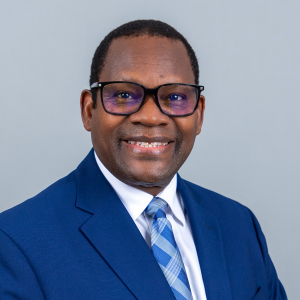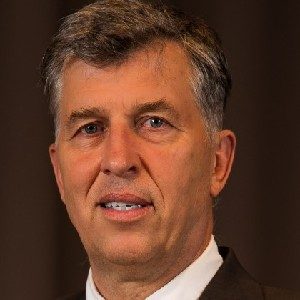Master of Arts in Missiology
Advance in practical and holistic mission to serve in a multicultural world.
About the Programme
The Master of Arts in Missiology programme offers one the opportunity to learn the principles and practice of mission. The emphasis is on holistic mission: the whole gospel for the salvation of the whole person brought by whole people of God to the whole continent of Africa.
With the aim of tackling challenges brought about by local and global changes and transformations of the Christian Church in Africa, the focus of the programme is on African traditional religions and Islam. These two majors reflect areas of significant importance in the mission of the Christian Church in Africa. Each area represents unique challenges that require specialized knowledge, skills and attitudes.
In line with the philosophy of AUA as a Seventh-day Adventist educational institution, the programme emphasizes the gospel commission to make disciples of all nations in view of redemption and restoration of the image of God in human beings.
What You May Become?
- A missiologist specialist
- Strategic missionary planner
- A mission-driven leader
- An effective pastor
- A theology teacher
Specializations
- Islamic Ministry
- African Traditional Religion
Duration of the Programme
- Full Time – Two Years
- Part-Time – Three Years
Admission Requirements
- Have a bachelor’s degree in Theology/Religion with a minimum CGPA of 3.00 on a 4-point scale or its equivalent grade of 60%. Applicants with a CGPA of 2.5 to 2.99 or 55% to 59% may be accepted on probation.
- Have two Recommendations: One from the local Church Board and one
from your previous university or from the employing organization if
employed. Submit the name, email address, and designation of your referees, and AUA admissions will email the link for completing the online
recommendation form. The applicant should seek the consent of the referee before submitting their details. - Must demonstrate proficiency in English.
Curriculum
Core Courses
MSSN 528
Foundations of Cross-cultural Mission
3 Credits
OTST/NTST
612 Biblical Hermeneutics
3 Credits
The purpose of this course is to develop sound (biblically-based; the sola Scriptura approach) principles of hermeneutics in interpreting Scripture by tracing the history and development of biblical interpretation within the Judeo-Christian tradition including modern and postmodern methods of interpretation and their presuppositions. It also emphasizes the
practical application of biblical hermeneutical principles for personal spiritual experience and for preaching.
THST 631
Adventist Theological Heritage
3 Credits
A study of doctrines in which the SDA Church offers relevant contributions to a theological understanding of the Bible, such as the mediatorial ministry of Christ in the heavenly sanctuary, the antitypical significance of the Day of Atonement, the pre-advent investigative phase of the judgment, the 3 Angels’ Messages of Revelation 14, the eschatological remnant, the gift of prophecy, the unmasking of spiritualism, and the message of health reform.
MSSN 632
Biblical Theology of Mission
3 Credits
The development of a theology of mission in light of God’s mission in the present diverse world. Special attention will be given to grounding both the mission of the Church and the work of missionaries in Scripture and from an Adventist eschatological perspective. A study of the biblical foundations of mission, the nature of mission theology, and some of its contemporary
expressions.
MSSN 685
Principles and Practice of World Mission
3 Credits
This course is a concentrated study of mission theory and strategy, cultural perspectives of mission service, and basic principles of church growth.
Research Courses
GSEM 605
Applied Theology Research Methods and Writing
3 Credits
This course is a study of the philosophy, methods, tools, and techniques of documentary research, especially geared at developing a thesis or dissertation in academic programs such as MABTS and Ph.D. programs. It also focuses on the techniques of developing a ministry project in Applied Theology areas such as Chaplaincy, Master of Divinity, Mission, and Pastoral Theology programs.
GSEM 610
Applied Theology Research Seminar
2 Credits
ISLM 637
Directed Independent Research: Biblical and Qur’anic Studies *
2 Credits
This course provides students with the skills, which will enable them to share their faith with Muslim people in various contexts. It will also offer opportunities for further development in their understanding of the Qur’an and related Muslim sources and how to relate them to a Biblical and theological perspective.
AFTR 660
Directed Independent Research: Topics in Christianity and African Traditional Religion**
2 Credits
The course analyses and evaluates several significant themes that challenge the interrelationship between Christianity and African Traditional Religions. It includes such topics as dual allegiance, funeral and burial customs and practice, demonic possessions and spiritual warfare, witchcraft, magic and spells, and a host of other issues. An attempt is made to define biblical faith and values as they apply to life values and practices covered by the topics.
MSSN 696
MA Missiology Project
6 Credits
This is the report of a project completed for the MA in Mission Studies. The project will be practical in nature but must be grounded in appropriate research. The written report should be around 60-80 pages in length.
Specialization Courses: Islamic Studies
ARBC 521
Introduction to Arabic
3 Credits
The course introduces the student to Arabic with an emphasis on developing oral, listening, reading, and writing skills.
ARBC 522
Intermediate Arabic
3 Credits
This course focuses on Grammar, syntax, and reading skills in Arabic. The students are expected to reach more excellent proficiency in Arabic, including speaking, listening to, and reading classical texts. Prerequisite: ARBC 521 or equivalent.
ISLM 620
Introduction to Islam
3 Credits
This course introduces the study of Islam in Africa in its historical and doctrinal aspects. As a religion in Africa, Islam will be examined in the various ways through which it has interacted with its African believer. The course seeks to equip individuals who work in Muslim contexts with proper knowledge and understanding of Muslim life and worldview. The religious life of Muslims and the various Islamic role models, Family law (Shar’iah), and its impact on women and the family, spirituality, and ministry tools among different genders are examined.
ISLM 625
Islamic Theology and Traditions
3 Credits
The course introduces the students to Islamic traditions and beliefs. It utilizes a three-fold approach: a study of the sacred texts of Islam, an examination of the fundamental doctrines derived from these texts, and an exploration of the history of various interpretations given to these texts and doctrines by major Muslim sects.
ISLM 632
Qur’an and the Bible
3 Credits
This course explores the Qur’an and its significant themes in comparison to biblical themes. It guides the student in identifying parallel themes and how they may be compared and contrasted. It includes the canonization of biblical literature compared to the development of the Qur’an and other Muslim sacred texts. Principles and methods of interpretation are compared in their historical development in the respective traditions.
ISLM 678
Christian-Muslim Dialogue
2 Credits
Islam has established itself over the continent of Africa, and many Christian have Muslim neighbors. This course explores ways by which dialogue and witness may be shared in a manner that reflects understanding and respect. By better knowing the beliefs and values taught in the Quran, Christian neighbors may have greater confidence in talking to Muslims.
Specialization Courses: African Traditional Religion
AFTR 541
Foundations of African Philosophy
3 Credits
This is a foundational course on African Philosophy. It introduces the student to the worldview, metaphysics, and epistemology of African peoples. Comparisons and parallels are examined between African and Western Philosophy. Repositories and expressions of African philosophy expressed in social life, music proverbs and arts, response to crises, and
other expressions are evaluated.
AFTR 640
African Culture and Religion
3 Credits
The course investigates African traditional cultures and religions (ATR) and the challenges African cultures pose to Christian life in Africa. Topics to be covered include the concept of culture, social groupings, ATR, characteristics of ATR, sources of ATR, African world view, fundamental values, religious leaders, mystical forces, African religious experience, ethics, and morality, death, and hereafter. Attention will also be focused on specific societies.
AFTR 650
African Theological Thought
3 Credits
The course is a historical and theological analysis of the appropriation and integration of the Christian faith in Africa. It covers such topics as Christianity and African cultural heritage, African Theological Development, Basic sources of African religious ideas, Christianity and Inculturation, and guidelines for doing Christian Theology in Africa. The course includes a critique and evaluation of prominent African writers in the area of religion and theology.
AFTR 682
African Traditional Religion: Major Beliefs and Practices
3 Credits
This course is designed to guide the student in an analytical evaluation of African Religions’ rich heritage. It examines the African worldview from different theories, both from the traditional African societies and Western social science approaches. The course will also investigate how African religious traditions are a springboard for meaningful religious dialogue with Africans. What role does religion play in African society today?
MSSN 692
Contextualization
3 Credits
The purposes of this course are to examine the principles of contextualization, identify its relevance and distinguish it from syncretism. Special attention is given to the challenge of African Religions to Christianity.
MSSN 692
Power Encounter
2 Credits
Explores the biblical concepts of spiritual power as they relate to God, Christ, the Holy Spirit, angels, Satan, and demons. It examines and clarifies the influence of the African worldview in relating to these powers and proffers ways of bringing people from the fear and control of Satan to faith and commitment to God.
Programme Coordinator

Olaotse Obed Gabasiane, PhD
Senior Lecturer, Theological Seminary
Education
- PhD in Intercultural Studies and Mission (Missiology), Andrews University, Berrien Springs, Michigan, USA, 2014
- Master of Divinity (Equiv.), Andrews University, Berrien Springs, Michigan, USA, 2008
- Master of Arts in Pastoral Ministry (MAPM), Solusi University, Bulawayo, Zimbabwe, 2001
Areas of Expertise
- Cultural Competencies, Skills, & Intelligence; African Studies, Asian Studies, Power Encounter, AI in Religion/Mission, Mental and Spiritual Health, and Mission Research.
Biography
Olaotse Obed Gabasiane is married to Betty Chandapiwa Gabasiane, and they have two young adult children.
Originally from Botswana, Gabasiane, an ordained minister of the Gospel, has served in various capacities within the Adventist Church. His roles have included part-time literature evangelist, hospital & college chaplain, pastor, departmental director, church administrator, and adjunct & full-time lecturer at Solusi University (ZW), Lake Michigan College (MI), Adventist International Institute of Advanced Studies [AIIAS] (PH), and Adventist University of Africa [AUA] (KE).
Currently teaching at the AUA Theological Seminary in the Applied Theology/Missiology department, Gabasiane also serves as the MA Missiology Program Coordinator. With a combined twenty-six years of service in the Church, he is deeply committed to theological education and missional engagement.
In his leisure time, Gabasiane enjoys spending time with his family, appreciating nature, writing, and traveling.

Leendert Brouwer, ThD
Lecturer, Theological Seminary
Education
- Ph.D., University of South Africa (2015)
Areas of Expertise
- Application of ritual studies in the area of mission studies and theology
Biography
Dr. Brouwer is endowed with a wealth of experience and knowledge in mission studies and has served as a lecturer in Theology at Universidad Peruana Union, Lima, Peru; Lecturer in Theology at Hong Kong Adventist College, Hong Kong; Ministerial secretary, Dutch Union and as an ordained pastor, Dutch Union.
Featured Alumni

NATASHA WILLIAMS
2018 / Master of Arts in Missiology
There are three important aspects of my experience at AUA that I want to highlight. One of the key moments in my learning can be distilled down to one session in which one of the professors invited students discuss the effects of the pandemic with us. That discussion challenged my thinking and provided me with a platform from which to to evaluate my beliefs through the lens of critical thought. Today, I still consider that one of the most important turning points in my life.
